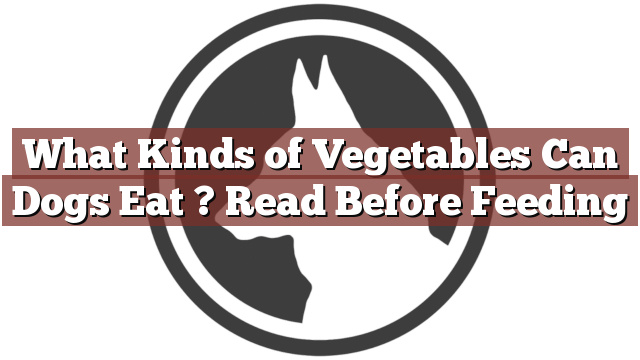Understanding Your Dog’s Dietary Needs
As responsible pet owners, it is essential to understand our dogs’ dietary needs to ensure their overall health and well-being. While dogs are primarily carnivores, they can also benefit from certain vegetables in their diet. However, it is crucial to be cautious and knowledgeable about which vegetables are safe for dogs to consume.
What Kinds of Vegetables Can Dogs Eat? Read Before Feeding
The question many pet owners have is, "Can dogs eat vegetables?" The answer is yes, but not all vegetables are suitable for our furry friends. Some vegetables can be a healthy addition to their diet, providing essential vitamins, minerals, and fiber. However, there are also vegetables that can be harmful or even toxic to dogs.
Safe vegetables for dogs include:
- Carrots: These crunchy vegetables are an excellent source of beta-carotene, which is converted into vitamin A in the body. Carrots also promote dental health by helping to remove plaque and freshen breath.
- Green beans: Low in calories and high in fiber, green beans can be a nutritious snack for dogs. They are also a good source of vitamins C and K.
- Sweet potatoes: Packed with vitamins A and C, as well as fiber, sweet potatoes are a healthy vegetable option. However, they should be cooked and served plain, without any added seasonings or toppings.
On the other hand, there are vegetables that should be avoided, as they can be harmful to dogs. These include onions, garlic, mushrooms, and avocados. These vegetables can cause various health issues, ranging from anemia to gastrointestinal upset.
Pros and Cons of Feeding Vegetables to Dogs
Feeding vegetables to dogs can have both pros and cons. One of the benefits of incorporating vegetables into your dog’s diet is the added nutritional value. Vegetables can provide vitamins, minerals, and fiber that may be lacking in commercial dog foods. They can also aid in weight management and promote a healthy digestive system.
However, it is important to note that dogs have different nutritional requirements than humans. While some vegetables are safe for dogs, others may cause digestive issues or even allergic reactions. Additionally, dogs may not be able to digest certain vegetables properly, leading to an upset stomach or diarrhea. It is always recommended to introduce vegetables gradually and in moderation.
Conclusion: Making Informed Choices for Your Dog’s Health
When it comes to feeding vegetables to your dog, it is crucial to make informed choices. While dogs can eat certain vegetables, it is essential to know which ones are safe and which ones to avoid. Always consult with your veterinarian before introducing any new food into your dog’s diet, especially if you are unsure about its safety.
Remember, a balanced and complete diet is key to your dog’s overall health. While vegetables can be a healthy addition, they should not replace a high-quality commercial dog food that meets all their nutritional needs. By understanding your dog’s dietary needs and making informed choices, you can ensure that they receive the best possible care and nutrition.
Thank you for taking the time to read through our exploration of [page_title]. As every dog lover knows, our furry friends have unique dietary needs and responses, often varying from one canine to another. This is why it's paramount to approach any changes in their diet with caution and knowledge.
Before introducing any new treats or making alterations to your dog's diet based on our insights, it's crucial to consult with a veterinarian about [page_title]. Their expertise ensures that the choices you make are well-suited to your particular pet's health and well-being.
Even seemingly harmless foods can sometimes lead to allergic reactions or digestive issues, which is why monitoring your dog after introducing any new food item is essential.
The content provided here on [page_title] is crafted with care, thorough research, and a genuine love for dogs. Nevertheless, it serves as a general guideline and should not be considered a substitute for professional veterinary advice.
Always prioritize the expert insights of your veterinarian, and remember that the health and happiness of your furry companion come first.
May your journey with your pet continue to be filled with joy, love, and safe culinary adventures. Happy reading, and even happier snacking for your canine friend!

